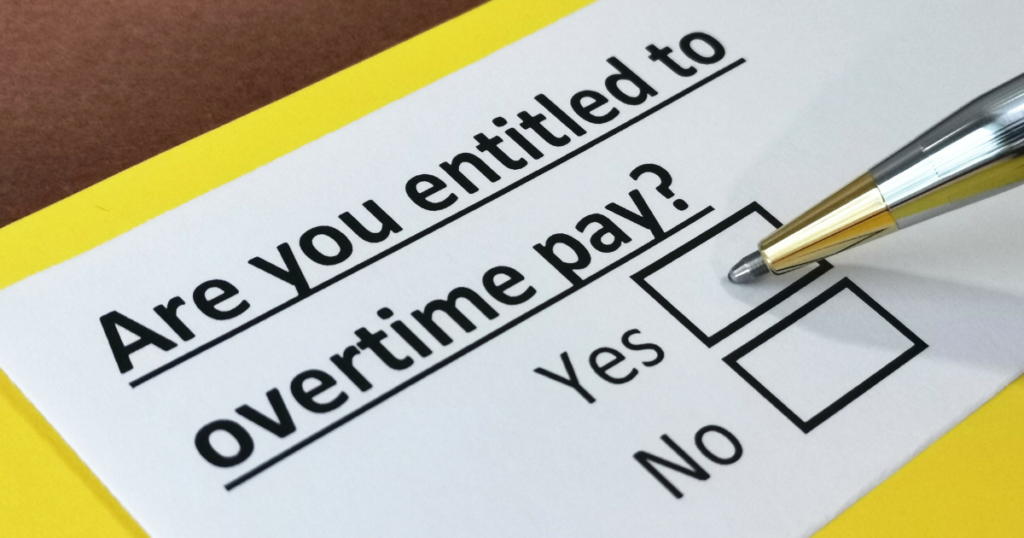At a glance:
- The federal department of labor is raising the threshold for low-paid salaried workers to be eligible for overtime pay, nearly doubling the number of salaried workers eligible for overtime in Maine
- Beginning in 2027 and every three years afterwards, the threshold will be adjusted upwards to keep pace with rising wages
- Several groups have filed lawsuits aiming to block the new rule from going into effect
In April, the Department of Labor announced updates to the overtime pay rule for salaried workers. Starting July 1, 2024, about 3,000 more workers in Maine will be eligible for overtime pay, with another 23,000 gaining eligibility in 2025.
Current and new federal overtime thresholds
- Current Rule: Salaried workers earning less than $684 a week ($35,568 a year) are eligible for overtime.
- New Rule (July 1, 2024): Threshold increases to $844 a week ($43,888 a year).
- New Rule (January 1, 2025): Threshold rises to $1,128 a week ($58,656 a year).
- Future Adjustments: Starting in 2027, the threshold will be updated every three years to keep up with rising wages.
While these are the federally established thresholds, some states like Maine have adopted their own threshold. Salaried workers earning less than $42,450 were eligible for overtime under Maine rules which was higher than the previous federal threshold. The new higher federal threshold means that Maine workers will now be covered by that standard.
Who is eligible for overtime?
Under the Fair Labor Standards Act (FLSA), hourly workers are generally eligible for overtime pay. For salaried workers, eligibility depends on their responsibilities. “Executive, administrative, or professional” (EAP) workers are usually exempt from overtime.
Two tests determine EAP classification:
- Duties Test: This is based on an employee’s tasks and level of responsibility. For example, if an employee can hire or fire other workers, exercise independent judgment, or perform work that requires advanced knowledge, they may be exempt.
- Salary Threshold: This is based on a salaried employee’s pay. All employees who fall below the threshold amount are eligible for overtime protection which prevents employers from inappropriately classifying regular workers as exempt to avoid paying overtime. The salary threshold is what the new rule updates.
The number of people eligible will rise over the next few years
- 2024: 3,000 more workers will gain eligibility, including 800 who earn between the current federal and new thresholds, and 2,200 covered by Maine’s current state threshold which was higher than the previous federal threshold.
- 2025: 23,000 additional workers will be eligible, with 1,400 not covered by state law and 21,800 earning between the revised state and new federal thresholds.
Overall, the new rule will nearly double the number of salaried Mainers eligible for overtime, from 29,000 to 55,000 by 2025. That’s nearly one in four salaried workers in the state who will gain eligibility for overtime.
Notably, the new threshold is still below historical levels. Adjusted for inflation, the salary test in 1970 was the equivalent of $73,760 in today’s dollars and covered more than 60 percent of workers nationwide.
What this means for workers
Not all newly eligible workers will see extra pay. Some may not work over 40 hours, or their employers may already be paying overtime. For other newly eligible employees, employers may choose to pay overtime wages, reduce reliance on overtime hours to maintain costs, or increase salaries to exceed the threshold in order to avoid paying overtime where it is cost-effective to do so. Using a methodology developed by the US Department of Labor, MECEP estimates that about 7,000 of the 26,000 impacted workers will get additional overtime pay or a salary increase, adding $7.9 million in extra compensation annually.
The fate of the new federal rule is uncertain
Several groups have filed lawsuits aiming to block the new rule from going into effect. This strategy was effective in 2016 when the Obama Administration attempted a similar increase to the salary threshold. The final legal status of the rule was not adjudicated because the incoming Trump administration declined to appeal a lower court ruling, in favor of implementing their own more modest increase to the salary threshold in 2019.
This year, the Maine legislature voted to approve an increase to the state overtime threshold which would have matched the federal proposal, but the appropriations committee declined to fund the bill after the Department of Administrative and Financial Affairs estimated it would require $2.8 million each year for state worker overtime pay. If the federal rule is put on hold, Maine workers would be covered by the existing state threshold of $42,450.




